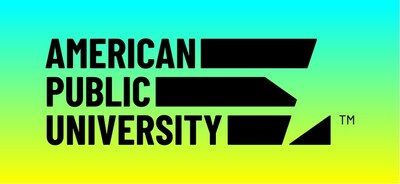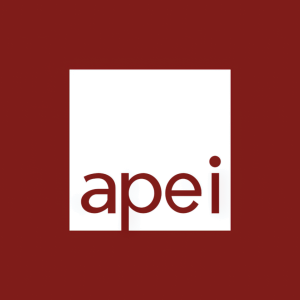American Public University System (APUS) Champions Academic Research Globally
Rhea-AI Summary
American Public University System (APUS) celebrates significant academic research advancements, showcasing groundbreaking projects and impactful global collaborations in 2024.
APUS faculty secured grants for 19 recent projects (12 domestic and seven international) with multidisciplinary impacts across North America, Europe, and Asia. In 2024, approximately 50 students participated in faculty-led research, exemplifying the University's dedication to experiential learning. These projects were part of the competitive faculty research grants fully funded by APUS.
Key projects include:
- Dr. Daniel Diaz’s ethnographic study on Nahuatl-speaking communities in Mexico.
- Dr. Kelly Chinners Reiss and Dr. Daniela Messina’s WaterTAP project, addressing drinking water quality and public health.
- Dr. Melissa Schnyder’s research on Indigenous food sovereignty through the restoration of traditional Hawaiian fishponds.
- The APUS Analog Research Group (AARG) completed its fifth analog mission to the Inflatable Lunar and Martian Analog Habitat (ILMAH).
- Dr. Kristin Drexler, Dr. Michelle Watts, and Anthony Caole’s COVID-19 research in Kodiak, Alaska.
APUS is committed to fostering ongoing research that bridges disciplines, cultures, and borders to drive innovation and academic excellence.
Positive
- APUS faculty secured grants for 19 projects with multidisciplinary impacts across three continents.
- Approximately 50 students participated in faculty-led research in 2024, demonstrating APUS’s commitment to experiential learning.
- The WaterTAP project distributed over 700 water testing kits, addressing drinking water quality and public health.
Negative
- None.
Innovative Faculty Research Grants and 19 Applied Learning Projects with 50 Students Help Drive the University's Global Digital Journey
In 2024 alone, approximately 50 students participated in faculty-led research through data collection, analysis, and other key activities, exemplifying the University's dedication to experiential learning. These projects were part of the competitive faculty research grants that are fully funded by APUS.
"APUS is proud to support a range of research experiences that advance academic inquiry while addressing real-world challenges," said Dr. Elizabeth Johnson, APUS Provost. "Through faculty and student collaboration, we are making meaningful contributions to local and global communities."
Recent Research Highlights
Dr. Daniel Diaz – Listen to Our Voices
Dr. Diaz's ethnographic study explores the cultural and linguistic richness of Nahuatl-speaking communities in
Dr. Kelly Chinners Reiss and Dr. Daniela Messina – WaterTAP
WaterTAP addresses drinking water quality and public health by distributing more than 700 water testing kits. Recognized at an Association of Advancing Participatory Sciences annual conference, the project empowers student participants to become science and data-savvy with a resource they rely on daily.
Dr. Melissa Schnyder – Native Fishpond Restoration in
Dr. Schnyder's research examines Indigenous food sovereignty through the restoration of traditional Hawaiian fishponds. Her work highlights sustainable, place-based food systems and environmental stewardship rooted in cultural heritage.
APUS Analog Research Group (AARG)
The student-led AARG, created in fall 2020 and overseen by faculty advisor Dr. Kristen Miller, has completed several notable research missions and successfully completed its fifth analog mission to the Inflatable Lunar and Martian Analog Habitat (ILMAH) in October. The focus was for four students to research plant growth in regolith, fatigue, and communication systems. In January, AARG sent a team to
Dr. Kristin Drexler, Dr. Michelle Watts, and Anthony Caole, Student, Doctor of Global Security – COVID-19 Research in
In summer 2024, researchers traveled to
APUS is committed to fostering ongoing research that bridges disciplines, cultures, and borders to drive innovation and academic excellence with students top of mind. As part of the University's global digital journey, the school intends to continue expanding opportunities for faculty-led student research both locally and globally.
About American Public University System
American Public University System (APUS) delivers affordable, high-quality, workforce-relevant higher education. With a rich, 33-year history and vibrant community of over 149,000 alumni from more than 80 countries, APUS is recognized for its innovative approach to online learning1. APUS is in the top
APUS, which includes American Military University (AMU) and American Public University (APU), is accredited by the Higher Learning Commission (HLC), an institutional accreditation agency recognized by the
1 APUS has been honored with the online Learning Consortium's Gomory Award for Quality Online Education and is a five-time recipient of the consortium's Effective Practice Award https://www.apus.edu/newsroom/awards/.
2 Ranking based on 20-year net present value (NPV) https://cew.georgetown.edu/cew-reports/roi2022/.
American Public University System, American Public University, and American Military University are not affiliated with American University or the
CONTACT
Meg Sheeley
Manager, Public Relations, APUS
MSheeley@apus.edu
![]() View original content to download multimedia:https://www.prnewswire.com/news-releases/american-public-university-system-apus-champions-academic-research-globally-302381220.html
View original content to download multimedia:https://www.prnewswire.com/news-releases/american-public-university-system-apus-champions-academic-research-globally-302381220.html
SOURCE American Public University System










